| Article ID | Journal | Published Year | Pages | File Type |
|---|---|---|---|---|
| 1740225 | Nuclear Engineering and Technology | 2014 | 8 Pages |
A concrete cask is an option for spent nuclear fuel interim storage. A concrete cask usually consists of a metallic canister which confines the spent nuclear fuel assemblies and a concrete overpack. When the overpack undergoes a missile impact, which might be caused by a tornado or an aircraft crash, it should sustain an acceptable level of structural integrity so that its radiation shielding capability and the retrievability of the canister are maintained. A missile impact against a concrete overpack produces two damage modes, local damage and global damage. In conventional approaches [1], those two damage modes are decoupled and evaluated separately. The local damage of concrete is usually evaluated by empirical formulas, while the global damage is evaluated by finite element analysis. However, this decoupled approach may lead to a very conservative estimation of both damages. In this research, finite element analysis with material failure models and element erosion is applied to the evaluation of local and global damage of concrete overpacks under high speed missile impacts. Two types of concrete overpacks with different configurations are considered. The numerical simulation results are compared with test results, and it is shown that the finite element analysis predicts both local and global damage qualitatively well, but the quantitative accuracy of the results are highly dependent on the fine-tuning of material and failure parameters.
